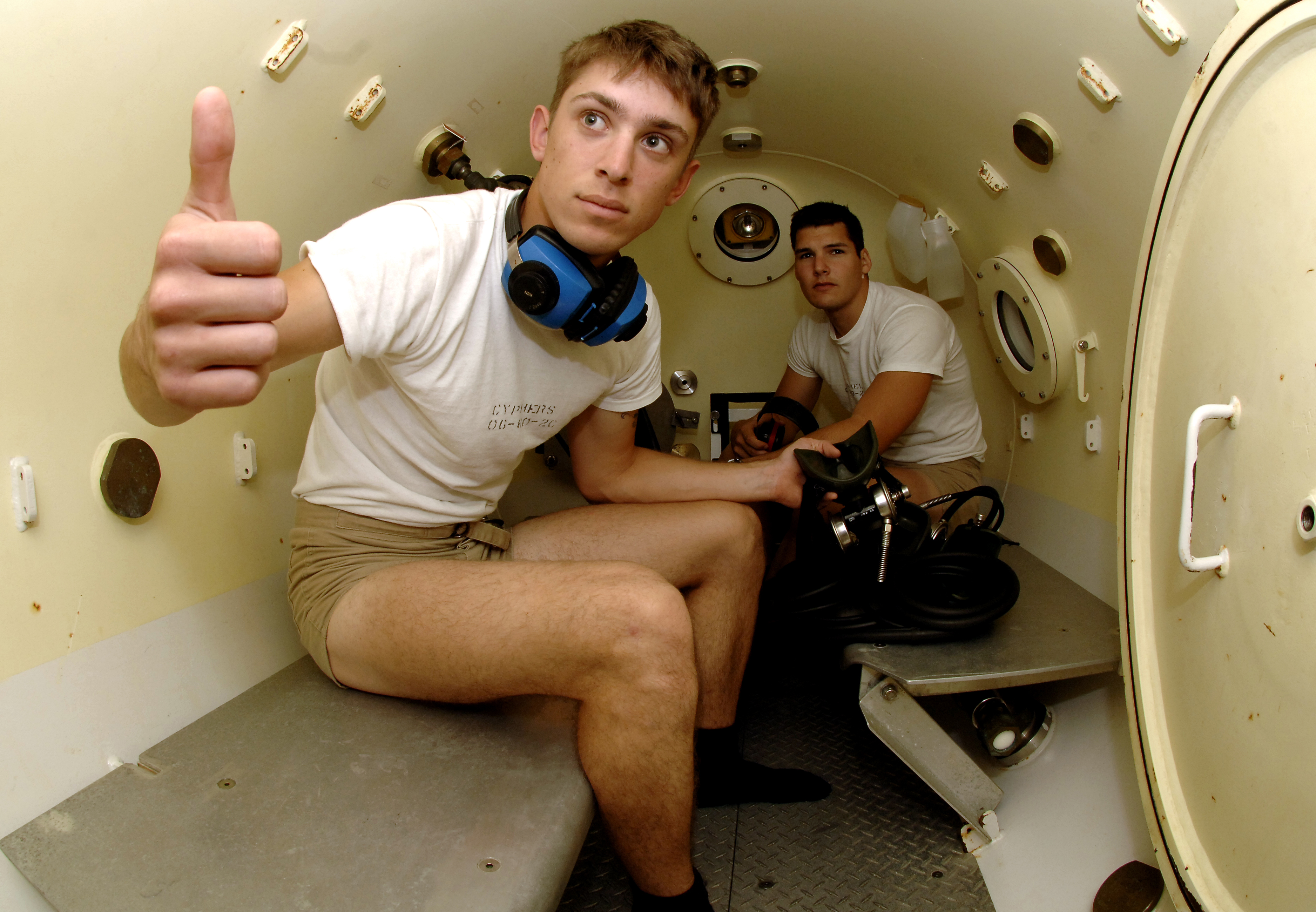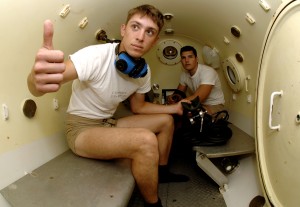Decompression sickness, or caisson disease may occur in any of the following situations:
-
Dive accelerated swimming;
-
Airplanes take off rapidly or lose altitude rapidly;
-
If a diver flies an airplane after diving.
Decompression sickness is caused by the leakage of inert gases, usually nitrogen, into body fluids and tissues, which come out of the physical solution and form gaseous bubbles.
Signs and symptoms of decompression sickness
Gaseous bubbles can form anywhere in the body, but the symptomatic sensation is most common in the shoulders, elbows, knees and ankles.
This list lists the different types of DCS symptoms. “Locular painIs the cause of about 60-70% of all DCS cases where the shoulders are the most common. Neurological symptoms are present in 10-15% cases, manifested as headaches and visual disturbances.
"Dyspnoea ”occurs less frequently and occurs in approximately 2% of all DCS cases. Skin manifestations may occur in approximately 10-15% cases.
Symptoms of decompression sickness and signs may include: skin rash, extreme tiredness, joint pain, blurred vision, imbalance, difficulty breathing, lack of strength, numbness, paralysis, unconsciousness and even death. Symptoms are associated with deterioration of the central nervous system caused by a serious injury. There is usually joint pain in the elbows and knees. There are other terms that describe possible symptoms, such as 'dyspnoea' and 'stroke'.
Treatment of decompression sickness
Recompression is the only effective treatment for severe Decompression sickness although at rest and oxygen (increasing the percentage of oxygen in the air breathed through a tightly fitted oxygen mask) used in milder cases may also be effective. It is usually transferred to a recompression cab. In diving, a high-risk alternative is water recompression.
Oxygen first aid treatment is useful in suspected Decompression sickness accidents or for divers who have made a rapid jump or have interrupted decompression breaks. Many fully closed-loop rebreathers can supply sustained high concentrations of oxygen-enriched gas, which can be used as an alternative to a pure open-loop oxygen revitalizer.
Swimming while diving
Decompression sickness is mostly known as an injury that affects divers. The pressure in the surrounding water increases the moment the diver descends and decreases as he swims. The risk of decompression sickness is increased by diving for a long time or too deeply, without swimming slowly or without using decompression breaks to expel inert gas normally, although specific risk factors are not well understood. Different divers in the same position tend to be more sensitive than others. It is believed that experienced divers tolerate the symptoms of DCS better, they may occur later than a diver with less experience.
* DCS - abbreviation in English


